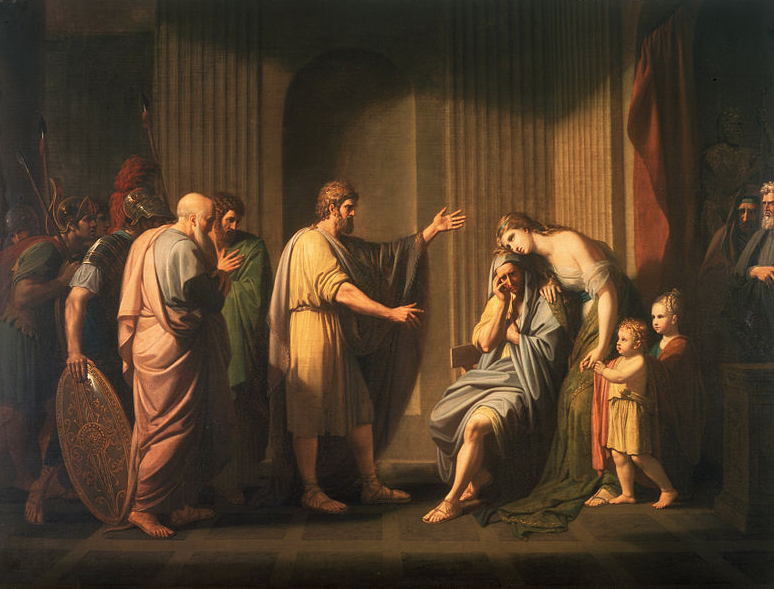
The origin of the word adultery comes from the Latin word adulterāre and means to corrupt or make impure. We associate this word with marriage and the act of becoming impure by having physical relations with someone outside of ones publicly accepted spiritual or religious union.
Some ancient civilizations took the act of adultery very seriously. For example, in ancient Egypt the rape of another man’s wife would result in emasculation. However, if the married woman agreed to the physical union, both parties would be whipped and possibly executed. On the other hand, a married man might have an affair with an unmarried woman and neither of them faced serious consequences.

Adultery was not a problem among the Spartans. A Spartan warrior might offer up his fertile wife to another man so that they could seal their bond as brothers. Any child born from such a union was adopted by the husband and raised as one of his own.
In Athenian culture, adultery was viewed as an act of seduction. If a man were to seduce the wife of another man, he was viewed as turning her away from her family and making her betray her loyalty to her husband. Any man caught in the act of adultery with another man’s wife could be killed. The wife would often be divorced.
In ancient Rome, a man committed adultery when he partnered with another man’s wife or a man’s unmarried daughter. These affairs were generally dealt with privately. The unfaithful wife would have been divorced and half of her dowry would have been kept by the wronged husband.
Among the Vikings, a husband had the right to kill both his wife and her suitor if caught in the act of adultery. In some of the Viking law codes, cheating husbands could also face punishments.
Fortunately, divorce was easy in Viking times and either party could leave an unhappy marriage with little trouble.

